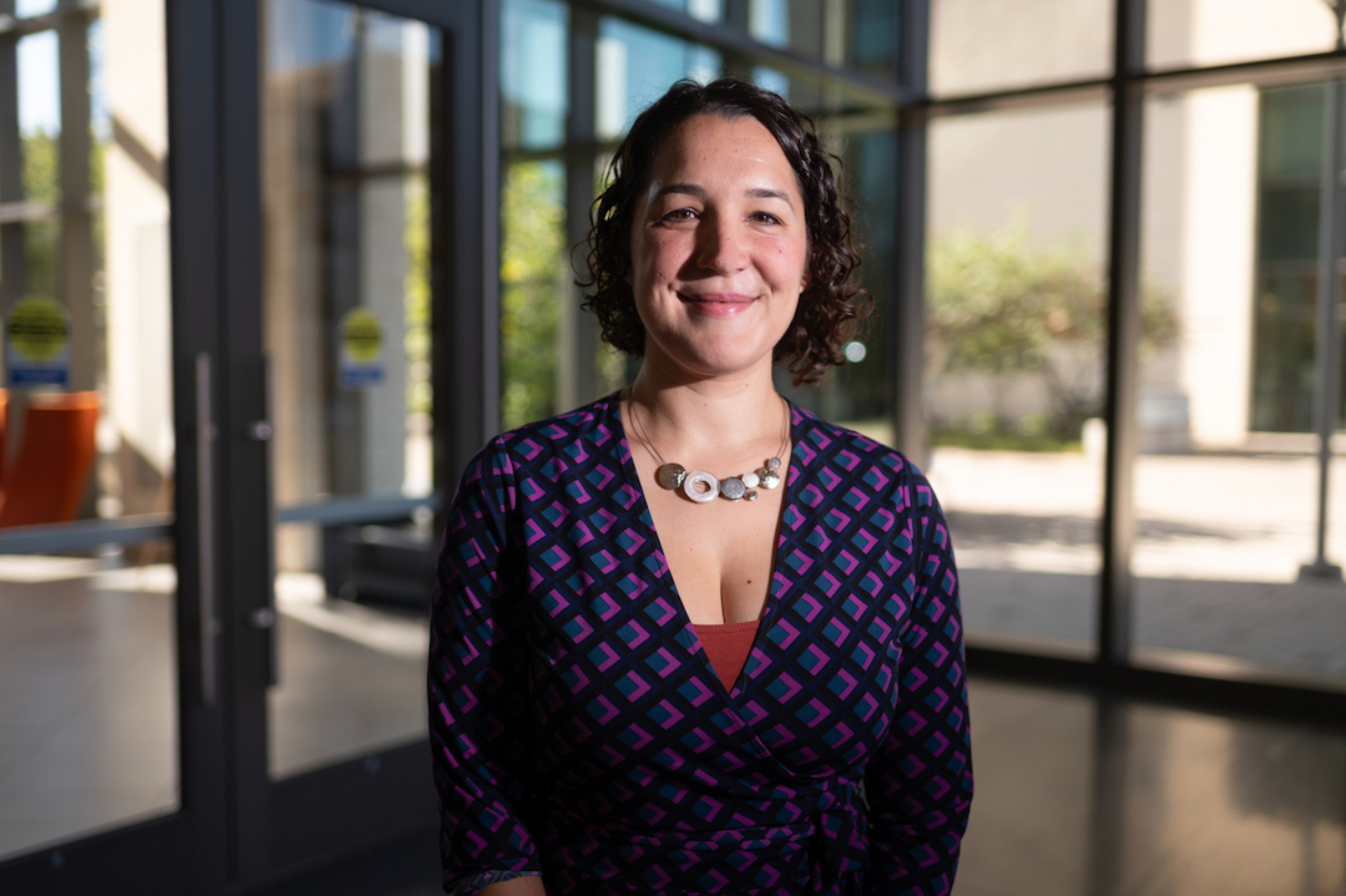Methods of preventing cancer, like early screening or vaccination, only work when people can access them. And for many, cancer diagnoses are coming too late.
It’s the focus of Jenny Spencer, Ph.D., assistant professor in Dell Medical School’s departments of Internal Medicine and Population Health, and member of the Livestrong Cancer Institutes. Through decision science and economic modeling, she’s working to close gaps in early cancer care and prevention, with an emphasis on those who need it most.

Jenny Spencer, Ph.D.
What’s the problem you’re hoping to solve, and how did you come to recognize it?
We have incredible tools to prevent cancer and to detect cancer early — things like HPV vaccination and breast, cervical and colon cancer screening. But despite how much good we know these can do, we still have a hard time getting them to everyone who needs them.
My research focuses on equity — thinking about how populations of a minoritized race, ethnicity, or sexual/gender identity face additional barriers to accessing care, and what we can do about it. My work involves understanding where these gaps are and how we can start to close them, whether through changing policies and practices or through more direct interventions to help improve access.
The biggest challenge of prevention is that when it works well, you don’t see it.
Jenny Spencer, Ph.D.
What are you doing about it?
My work is in developing and using decision models, which involves a much more quantitative, “math-y” approach to understanding and addressing equity. One of the interesting things about understanding prevention is that oftentimes the arc of success is really long and hard to see directly — it’s really about the cancers that don’t happen.
So my work involves creating predictive models of cancer where we can think big picture about what is happening across the health care system: where and why it’s not working for certain groups, and what it might look like to intervene in different ways. Then, when we actually implement an intervention, we can connect the short-term measures (like additional numbers of people screened) to the long-term outcomes we really care about but can’t directly measure (like cancers prevented or lives saved).
What makes you positioned to approach this problem?
Being at Dell Med gives me a unique opportunity to work with clinicians and community-based researchers to address equity in cancer screening and cancer prevention. There’s so much amazing work going on here on the intervention side, working to understand and address the needs of the community.
My more analytic approach is able to support that work in two ways: First, helping to build the evidence base for understanding these issues — the numbers to go along with the personal stories that drive so much of this work. Second, the biggest challenge of prevention is that when it works well, you don’t see it. So being able to use modeling to demonstrate the value and impact of these interventions on a large scale is really important to sustaining these efforts long term.
What needs to happen to change this in Austin? The U.S.? The world?
Some of the steps to improve cancer prevention and screening involve education — making sure that people understand what screenings are recommended for them and why they are important. But I think a much bigger part of it when we’re trying to address issues of equity is improving access to care and maybe changing how we think about delivering these services.
Thinking about the big picture: We know that insurance coverage is very important and being able to see a provider that you trust and can form a relationship with is important too. There’s also a lot of work being done on how we can deliver these kinds of care outside a traditional setting — things like mailed screening for some types of cancer might help improve the entry point to accessing care for those who need it most.
I am a logical person, and I love taking a logical approach to problem-solving. In the U.S., we’ve created a totally illogical health care system that emphasizes treatment over prevention, uses its resource in counterintuitive ways, and consistently reinforces societal inequities. My research uses health care data and mathematical models of disease to find ways to do better — to make our system not only more efficient but more equitable. Through finding and hopefully closing gaps in our system, we can make sure everyone can get the kinds of prevention and high-quality care that we know will save and improve lives.